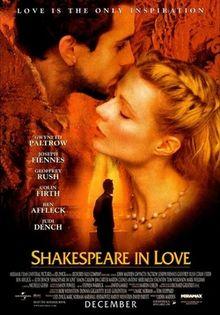 Welcome to British Isles Friday! British Isles Friday is a weekly event for sharing all things British and Irish - reviews, photos, opinions, trip reports, guides, links, resources, personal stories, interviews, and research posts. Join us each Friday to link your British and Irish themed content and to see what others have to share. The link list is at the bottom of this post. Pour a cup of tea or lift a pint and join our link party!
Welcome to British Isles Friday! British Isles Friday is a weekly event for sharing all things British and Irish - reviews, photos, opinions, trip reports, guides, links, resources, personal stories, interviews, and research posts. Join us each Friday to link your British and Irish themed content and to see what others have to share. The link list is at the bottom of this post. Pour a cup of tea or lift a pint and join our link party!
Last week, I shared photos from my adventure with bluebells. Tina reviewed The Kew Gardens Girls By Posy Lovell.
Today is William Shakespeare's 457th birthday. Probably. We know he was baptized on the 26th and that, at that time, babies were generally baptized three days after the birth. So, this seems like a good day to write a book about how Shakespeare's plays shaped and were shaped by what, in his day, was seen as a new world.
Book: Shakespeare in a Divided America: What His Plays Tell Us about Our Past and Future by James Shapiro
Genre: Nonfiction
Publisher: Penguin Press
Publication date: 2020
Pages: 286
Source: Borrowed as an ebook from the library
Summary and Thoughts: The introduction of Shakespeare in a Divided America grounds us in the present. It's mostly about the Shakespeare in the Park production of Julius Caesar in 2017 that opened with a mob wearing Make Russia Great Again hats and presented a Caesar played by an actor wearing a business suit and an extra-long red tie. In spite of the media's over-simplified characterization, the play was way more complicated than a criticism of one side of a political divide.
It was more about all the many ways we humans mess up around the issue of power - reveling in it as if power is the only value, taking it but not knowing how to make it reflect our values, or being unable to take it because we've been unable to wrestle with the complexity of power and values. Do the ends justify the means? Do the ends depend on the means?
After the introduction, Shakespeare in a Divided America is a chronological history of the United States told through the unique lens of how Americans responded to Shakespeare, whether by reading the plays or by performing and watching them. I wouldn't have guessed that this would be a useful way of looking at our history or that it would be so completely fascinating.
We begin in the 1830s. Former President John Quincy Adams is now a congressman from Massachusetts. Adams is an abolitionist but he breaks away from some new thinking among those who want to abolish slavery. People have started reconciling to the notion that interracial marriage is a natural consequence of freedom. Marriage restrictions would be a step too far in taking away the freedom of both white people and black people.
Adams disagreed and made his thoughts known in an essay about Othello. In Adams' mind, Desdemona's attraction to Othello was "unnatural passion." He blames Desdemona more than Othello in an essay that, today, reads as equal parts misogynistic and racist.
As we move along in history, we learn about a time in the first half of the 1800s that masculinity was so valued (or threatened?) that some male actors were afraid to play Romeo. Female actors took on the role instead.
Did you know that both President Abraham Lincoln and his assassin, John Wilkes Booth, were huge Shakespeare fans?
I was fascinated by the stories around Kiss Me Kate, based on Shakespeare's Taming the Shrew, and all the post-WWII concerns about marital relations.

Shakespeare in a Divided America begins and ends with the production of Julius Caesar for Shakespeare in the Park in New York City. By the end, with deepened appreciation for the role that Shakespeare plays in American public life, we see that even this controversy in this polarized time is just the latest in a long line of controversies that Shakespeare has helped illuminate. We'll probably muddle our way through this one, too.
I read Shakespeare in a Divided America, as an ebook, at the same time that I listened to Why We're Polarized, as an audio ebook, read by the author, Ezra Klein. They make interesting companion books! I recommend Why We're Polarized not the least because he landed on some of the same solutions that work for me - monitor my news consumption so that I'm not feeding myself a constant diet of outrage and direct most of my attention and effort to the local level where it has an impact.
Have you read either of these books? What did you think?

About Joy Weese Moll
a librarian writing about books
